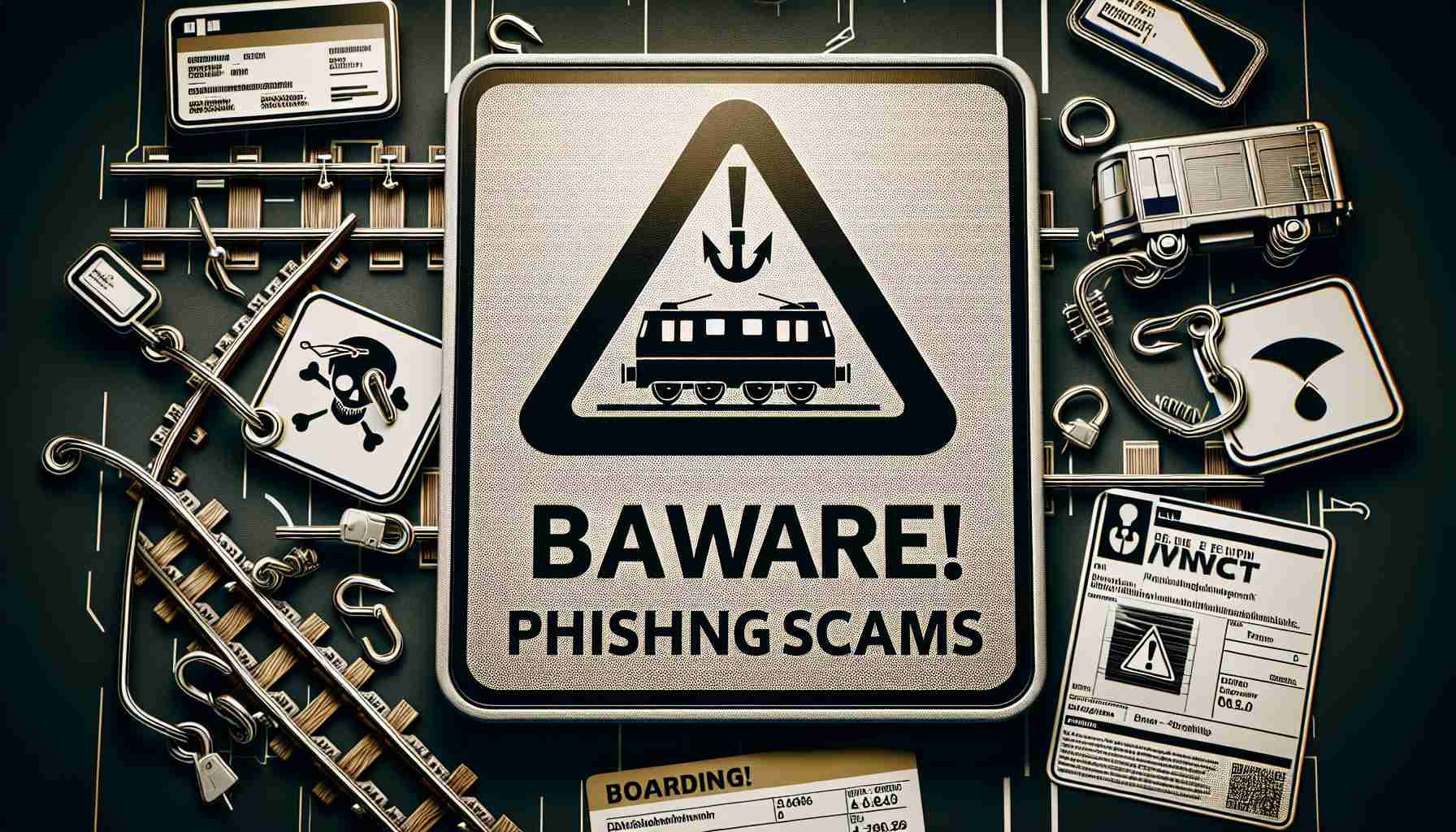- Scammers are targeting Germany’s train travelers, especially those with the Deutschlandticket.
- Phishing emails impersonate refund requests to deceive ticket holders, urging them to act quickly.
- Always verify unexpected emails, particularly those concerning financial matters.
- Report suspicious emails to authorities and never provide sensitive details via email.
- Trust established organizations that will never request personal information in this manner.
In recent months, a wave of cunning scammers has set their sights on Germany’s train travelers, particularly those holding the popular Deutschlandticket. With the price rising from €49 to €58, these fraudsters are crafting sophisticated phishing emails that can easily trick unsuspecting ticket holders.
Imagine receiving an email with the urgent subject line: “Deutschlandticket: Confirm Your €58 Refund Now.” It sounds reassuring, doesn’t it? But this is a classic bait to lure you in. The message claims you need to confirm a supposed double charge from September, promising an instant refund. But in reality, it’s a trap!
Once the targets select what they think is a refund option, they’re led to a single choice that falsely requests their bank details. This is where the scheme gets sinister; entering your information hands it directly to the criminals.
The Consumer Advice Center and the Federal Office for Information Security are both raising alarms. They stress that genuine organizations will never ask for sensitive information via email. If you receive such a message, delete it immediately or send it to your spam folder. It’s that simple to protect yourself!
Key takeaway: Always scrutinize unexpected emails, especially those urging immediate action regarding finances. A quick glance at your account statement can save you from a potential disaster. Keep your personal information safe and stay one step ahead of the scammers!
Stay Safe on the Rails: How to Outsmart Deutschlandticket Scammers!
Overview of the Scam Targeting Deutschlandticket Holders
In recent months, scammers have specifically targeted train travelers in Germany who use the popular Deutschlandticket. With the ticket’s price increase from €49 to €58, fraudsters have escalated their schemes, utilizing sophisticated phishing tactics to exploit unsuspecting customers. Their latest trick involves crafting convincing emails that appear to be from official sources, luring recipients into providing sensitive personal and financial information.
Key Insights on the Scam
– Scam Emails: Fraudulent emails may have alarming subject lines regarding refunds or charges, creating a sense of urgency.
– Red Flags: Legitimate companies will never ask for sensitive information like bank details via email.
– Consumer Protection: Authorities like the Consumer Advice Center and the Federal Office for Information Security are actively warning the public to be vigilant.
How to Recognize Phishing Scams
1. Check the Sender’s Email Address: Look for subtle misspellings or unusual domains.
2. Avoid Clicking Links: Instead of clicking, visit the official website directly.
3. Look for Generic Greetings: Phishing emails often use general terms like “Dear Customer” instead of your name.
4. Urgency and Threats: Be skeptical of messages that pressure you to act fast; it’s a common tactic to prevent careful consideration.
Important Questions Answered
1. What should I do if I receive a suspicious email related to my Deutschlandticket?
If you receive an email claiming to relate to your Deutschlandticket, you should:
– Avoid clicking any links within the email.
– Report it to the Consumer Advice Center or Federal Office for Information Security.
– Delete the email or move it to your spam folder.
2. Are the authorities taking steps to combat these scams?
Yes, both the Consumer Advice Center and the Federal Office for Information Security are raising awareness through campaigns, advising the public on how to recognize and report phishing attempts. They emphasize educating consumers on best practices for online security.
3. What are some general tips for protecting personal information online?
To protect your personal information online, consider:
– Using two-factor authentication wherever possible.
– Regularly updating your passwords and using strong, unique passwords for different accounts.
– Keeping your antivirus software and devices updated to protect against malware and other phishing schemes.
Additional Information on the Deutschlandticket
The Deutschlandticket has recently gained popularity, making it an appealing target for scammers looking to exploit the increased user base. To stay informed about any changes to the ticket or further developments regarding scams, travelers can seek updates from rail service providers and consumer protection agencies.
If you want more insights on safety while traveling or recent trends in train travel in Germany, you can check out more at the federal transportation website or publications by the Consumer Advice Center.
Visit more resources here: Federal Network Agency
Stay informed and safe on your travels!
